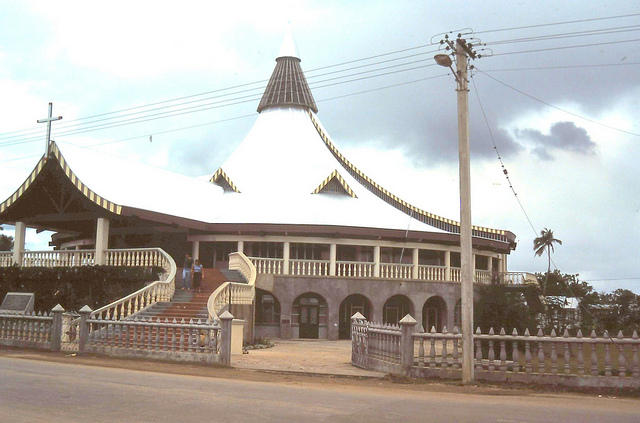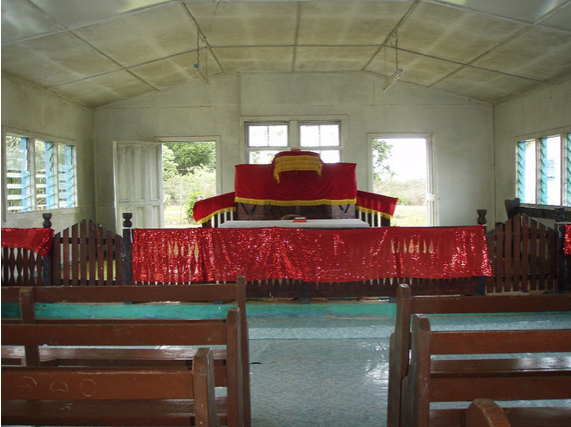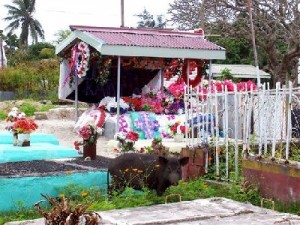Guest Post: Ruth Elayne Kongaika
Your visit to the Kingdom will be enriched by learning a little of the Tongan beliefs and history. After living in Tonga a short while, I observed that the beautiful people of the islands have strong spiritual inclinations as well as superstitious beliefs.
Since the eighteenth century, Tonga has been a Christian nation. Worship is a central characteristic of most Tongan people. Even today, the beating of drums in the villages signal the time for prayer or choir practice. Tongans love to sing to prepare for song festivals and as part of their daily worship.
 Religion is such a part of daily life that Tongan statute includes it. It is unlawful to open a store or shop on Sunday. Tonga is very peaceful and quiet on Sunday. The monarchy, nobles, as well as the commoners are encouraged to attend church. Families dress up in their best clothes to attend church. Some of them wear European style hats and elaborate fabrics that shine or sparkle to their services. Sunday is also the day that the best food is prepared and shared with neighbors so no one goes hungry.
Religion is such a part of daily life that Tongan statute includes it. It is unlawful to open a store or shop on Sunday. Tonga is very peaceful and quiet on Sunday. The monarchy, nobles, as well as the commoners are encouraged to attend church. Families dress up in their best clothes to attend church. Some of them wear European style hats and elaborate fabrics that shine or sparkle to their services. Sunday is also the day that the best food is prepared and shared with neighbors so no one goes hungry.
 Christian denominations in Tonga include the Free Wesleyan, Roman Catholic, and Seventh Day Adventist Churches, as well as The Church of Jesus Christ of Latter-day Saints (Mormons). There are many church schools throughout Tonga.
Christian denominations in Tonga include the Free Wesleyan, Roman Catholic, and Seventh Day Adventist Churches, as well as The Church of Jesus Christ of Latter-day Saints (Mormons). There are many church schools throughout Tonga.
There are specific times of the year which are religiously significant for Tongans:
Uike Lotu – the first week of every year. Some Christians gather morning and evening each day of this week for prayer, worship and feasting.
Toetu’u – Easter camps are held in many churches. It starts on Friday, and they feast, worship, play sports and sing.
Katoanga Misinale – Mission Giving or Stewardship Sunday is held the last part of the year. This tradition includes making a financial offering to their church. They donate thousands of dollars to build churches for the benefit of their fellow saints.
Po Le’o – The last day of the year (New Year’s Eve) is a special day of celebration and worship. They give thanksgiving for making it to the end of the year. At midnight, they try to be the first one to greet their relatives in the new year.
Tongan traditions are intertwined with religion. Several superstitions are woven into the fabric of Tongan daily life. My first experience with this occurred when we passed a graveyard while riding our bikes. I was whistling, and my wide-eyed friend told me to stop it. I was surprised when he told me that the whistling will wake the spirits of the dead in the graveyard, and that they would follow me.
 Another time, while we were cleaning a grave, I noticed some black rocks that seemed to distract from the beauty of the place. I went about removing them until my husband informed me they were very special volcanic rocks (from another island), and that I was not to remove them, or something dreadful might happen to me. Also, they have a strong belief that evil spirits can, and do, enter your body. They call it puke tevolo (devil sickness). They crush certain herbs and plants and smear them all over their body, including their hair, to get rid of the demons.
Another time, while we were cleaning a grave, I noticed some black rocks that seemed to distract from the beauty of the place. I went about removing them until my husband informed me they were very special volcanic rocks (from another island), and that I was not to remove them, or something dreadful might happen to me. Also, they have a strong belief that evil spirits can, and do, enter your body. They call it puke tevolo (devil sickness). They crush certain herbs and plants and smear them all over their body, including their hair, to get rid of the demons.
Another superstition is that you should not touch your father’s head, and especially do not eat your father’s left overs. There are many more superstitions, but suffice it to say, they have not totally moved away from their ancient Tongan beliefs, even though they adopted Christianity.
Ruth Elayne Kongaika was raised in the mainland, USA, but has been living in the South Pacific for the past forty years. She enjoys trying to capture the beauty of the islands through her photography, painting and writing. She has a blog which shares some of her art and favorite subjects at:
Email: kongaikr@byuh.edu












